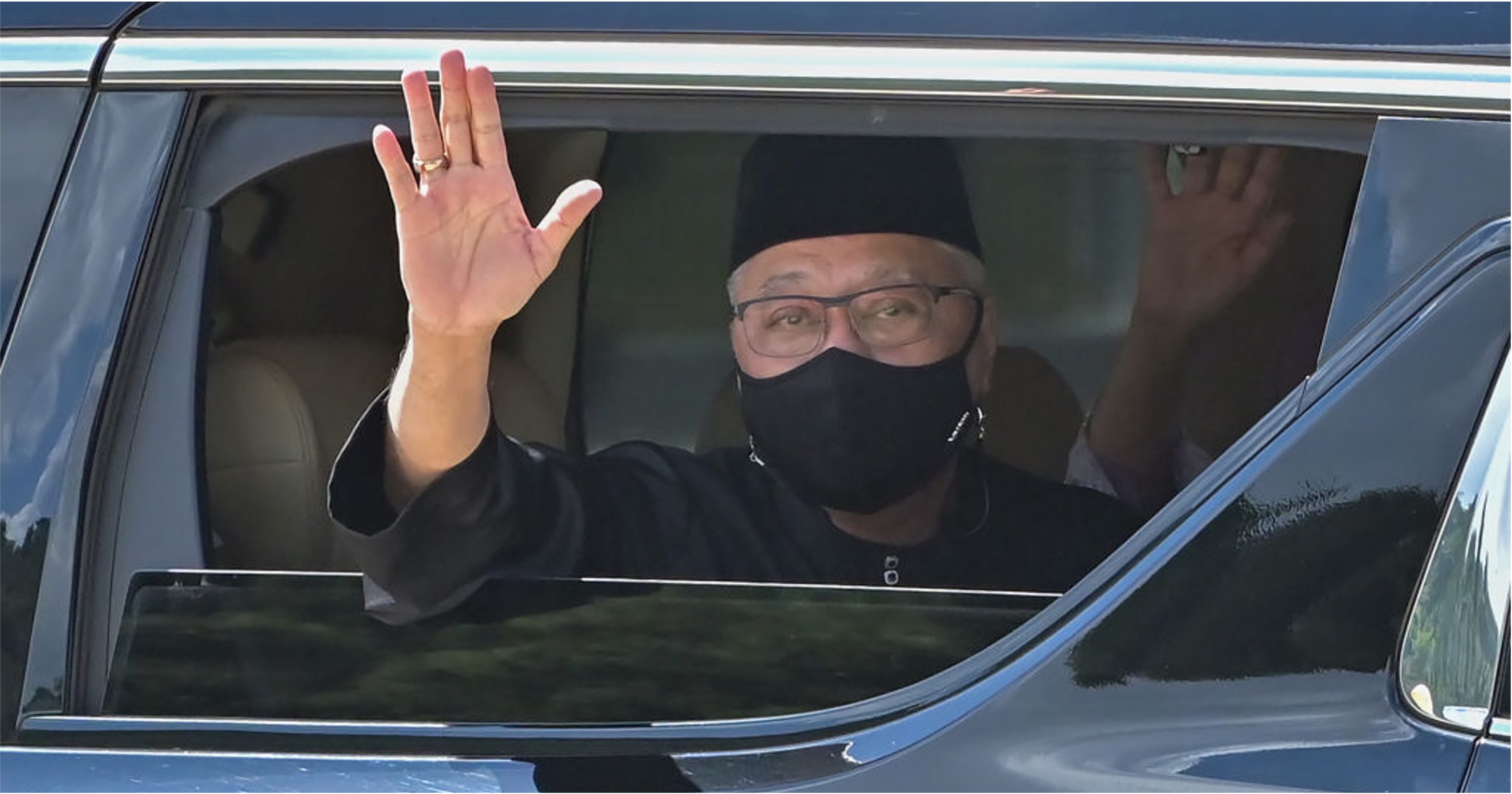Follow us on Telegram for the latest updates: https://t.me/mothershipsg
COMMENTARY: Singaporeans watched as the power struggle among Malaysia's political elite eventually resulted in the toppling of the eighth Prime Minister, from Bersatu, and the ascension of its ninth, from UMNO.
But what implications does an Ismail Sabri Yaakob administration have for Singapore?
James Chin, Professor of Asian Studies, University of Tasmania and Senior Fellow, Jeffrey Cheah Institute, Malaysia weighs in on the change at the helm, and says that by and large, Singaporeans have little cause to worry.
By James Chin
Much ado about nothing
Last Saturday afternoon, after several days of high political drama, Ismail Sabri Yaakob was sworn in as Malaysia’s ninth prime minister.
There was much excitement, as you expect with a new PM, but what was interesting was that this was Malaysia’s third PM in less than four years.
You had Mahathir sworn on May 10, 2018; Muhyiddin Yassin on March 1, 2020 and now, Sabri on August 21, 2021.
Will it be different this time?
The number one question people ask me is this: Will the new administration be different from the Muhyiddin administration?
The simple answer is “NO”. The MPs who supported Ismail Sabri to be PM are exactly the same MPs who kept Muhyiddin in power.
In fact, if I was to venture further, I would say we are travelling back in time as we are getting an UMNO government. So in a sense we are travelling back to pre-2018 days when UMNO and Barisan Nasional (BN) was in charge of the country.
I say this because UMNO, once they get into power, do not really share power and they politically kill off all rivals for the Malay vote.
Thus I expect UMNO to do what it can to absorb Bersatu, which started off as a breakaway UMNO faction, back into UMNO, or worse, politically kill off Bersatu in the next general election.
UMNO has no choice but to do this as if they allow Bersatu to survive, Bersatu will always be an internal rival for the Malay vote and may even threaten the government’s survival.
The other change I can see is that UMNO will now be much more united. With UMNO in the PM’s chair, the Najib/Zahid faction, which was responsible for the demise of the Muhyiddin administration, will now work towards UMNO unity.
There is no longer a need to split UMNO as every UMNO leader understands that with UMNO at the top, their requests are likely to be met.
Other than that, all the key challenges facing Muhyiddin is still the same for Sabri.
Relationship with Malaysia
Singapore had few problems with the Muhyiddin administration, not least because it was in power for such a short time.
Moreover, the senior Singaporean leadership knew Muhyiddin very well. Muhyiddin served as Johor's Menteri Besar (MB, Chief Minister) for a decade, from 1985 to 1995, and later as federal minister in various administrations.
What about the new Ismail Sabri Administration? I suspect the relationship will largely be the same.
One must understand that two unmovable forces are informing the ties. First, you cannot choose your neighbours. Geography will decide. So you have to learn to live with your neighbours no matter what the circumstances are.
Second, Singapore and Malaysia are like a divorced couple (given that Singapore was “married to Malaysia as a member of the Malaysian federation from 1963-65).
They know each other too well, and know it's not possible to live together but can remain friends. This does not mean there is no tension between them but it is possible to live with each other.
Moreover, in these pandemic times, there is nothing much to quarrel over as both countries are trying to deal with the pandemic and the issue of reopening their borders.
One should not also underestimate that both sides are tied to each other on many levels.
The thousands of Malaysians working in Singapore is just a small part. Malaysians are still a major source of immigrants to Singapore and the economic spill-overs from both side means if one side prospers, the other side will eventually prosper as well. Almost all Singaporeans who originally came from Malaya have Malaysian relatives and vice-versa.
Thus any political tensions between the new administration and Singapore are likely to be long-standing issues and should not worry the establishment too much.
Minority celebration
If there are groups in Singapore who are happy with the regime change on Saturday, it will be some segment of the Opposition in Singapore.
They are still looking for the first regime change in Singapore and since 2018, have been using (various versions) of the narrative “If Malaysians can do it, we can too!”.
Now, they can change the tune to: “If Malaysians can do it thrice, why can’t we do it once?”
But, as with all things in life, it's harder than a mere slogan. There are two vital elements of Singapore’s political culture that is missing from Malaysia. They are: Kiasu and Kiasi.
In the Singapore context, regime change is linked to Kiasu and Kiasi.
So, in my opinion, simply saying Malaysia has done it smoothly thrice is just part of the picture.
Conclusion
Singapore should not worry about too much about the change in Putrajaya over the weekend.
If anything, the change might be positive in that you have a government that is even more committed to tackling the pandemic and opening up the country by early next year.
This is good news for Singapore. Thousands of ordinary Malaysians and Singapore are cut off from visiting each other and this is not a normal state of affairs.
The sooner we have political stability in Malaysia, the better it is for the entire region.
Related stories:
Follow and listen to our podcast here
Top image from Getty Images.
If you like what you read, follow us on Facebook, Instagram, Twitter and Telegram to get the latest updates.
